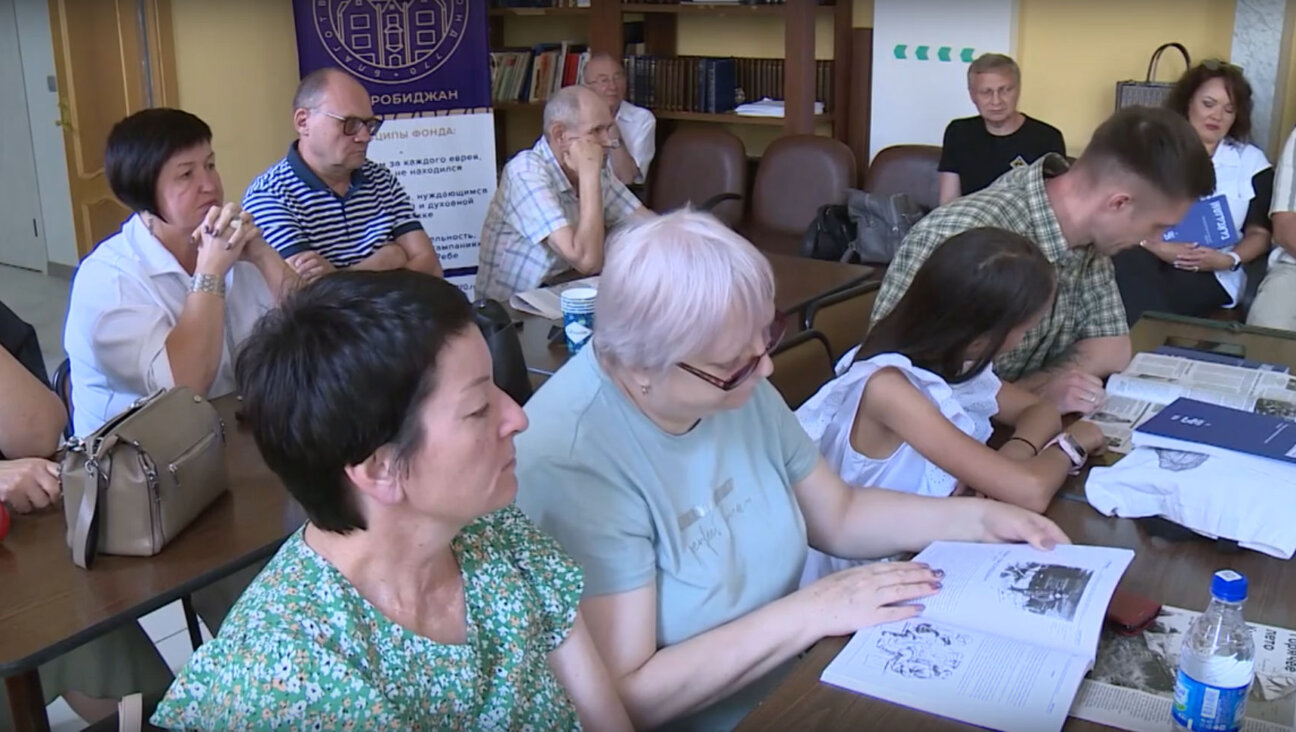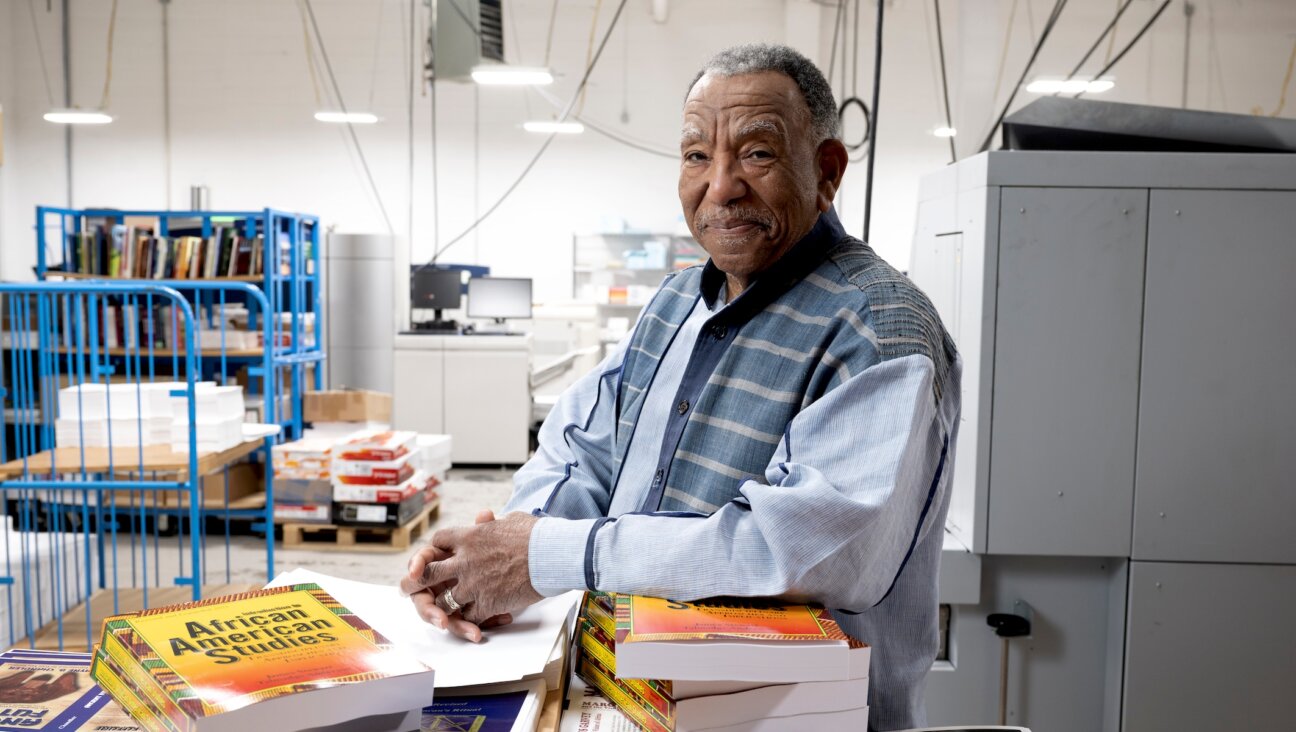Berg and Pearl Cast as Heroes Of Volunteerism
The similarities between the gruesome killing of Daniel Pearl and that of Nicholas Berg have been hard to avoid, with both Americans meeting their end at the hands of Islamic militants, on camera for the world to watch.
Less noticed have been the striking parallels in the way that both men lived their lives. On Monday night, the emphasis was reversed at a fund-raising event organized by the American Jewish World Service, a Peace Corps-style organization tailored for Jewish volunteers.
Ruth Messinger, the president of the World Service, began the benefit dinner by asking for a moment of silence to remember Berg. The night’s honorees were Daniel Pearl’s parents, Judea and Ruth, but Messinger and other speakers after her repeatedly came back to what she termed, “the extraordinary connection between these two individuals in terms of how they lived: both of them committed to being Jews making change in the world.”
As the night went on, what emerged from the many speakers was a new vision of Jewish heroism — inspired not by violent deaths, but by good works.
“You have two Jews trying to do good in the world,” Judea Pearl told the Forward after the dinner. “They represented the benevolent Jew — the Jew that we all want to be, reaching out to the world.”
At a time when the Jewish community has struggled against an image of itself as insular and self-obsessed, both Pearl and Berg came out of Monday as antidotal images of openness and engagement — as two young men dedicated to helping the unknown beyond the borders of their own community and country. The positive link between the two could not come at a more needed time, Judea Pearl said: “We Jews, unfortunately, don’t have heroes since the time of Sandy Koufax. Here is an opportunity.”
The effort to draw the two lives together was not publicized in advance of the Monday benefit, but Berg’s inclusion in the event was not entirely unexpected. Almost exactly a year before he was killed, Berg went to Kenya for two weeks to help on a World Service project, working to bring potable water to the Mt. Kilimanjaro region of the country.
Soon after his death, the Maasai community with which Berg worked sent his family a condolence letter, calling him a “true global citizen.”
The young, relatively inexperienced engineer was a markedly different person than Pearl, the seasoned reporter, who had been crossing dangerous borders for years. But these superficial differences gave way easily to the deeper-seated qualities of a burgeoning twin-sided image.
“He just had an approach to people that said, ‘I will be open and honest with you, and I will assume it comes back to me the same way,’” said Anya Guyer, an African program officer for the World Service, who knew Berg when he was in Kenya. “That sounds to me like exactly who Daniel Pearl was also.”
Guyer recalled that just days after showing up in Kenya, Berg was speaking bits of the local Ma language and was sharing his own Jewish experiences with the Maasai tribespeople.
Berg went to Africa at a time when he was earnestly exploring his own Jewish heritage. He initiated contact with the World Service as part of this spiritual process, attending events in New York and applying for the organization’s Jewish Volunteer Corps.
In all his phone and e-mail contact with Berg, Seth Appel, the director of service programs at the World Service, said Berg “was happy to find there was a Jewish framework for the work he wanted to do.”
These memories were recounted in the plush red library of Mona Ackerman, who was hosting the $750-a-head benefit dinner at her Fifth Avenue apartment in Manhattan. The atmosphere and tone were markedly different than the context in which Berg’s story has been told within the Jewish community up to this point. Most of the press releases from Jewish organizations after Berg’s death focused on the grim lessons about terrorism that could be learned from his decapitation.
In one statement, the Conference of Presidents of Major American Jewish Organizations, representing 52 Jewish groups, argued that Berg’s death, “underscores the evil that we are fighting in the war against terrorism. Rather than diminish support for the fight against global terrorism, our determination should be bolstered and our commitment to back our troops and our allies in this battle should be enhanced.”
Like any shocking cultural moments, Berg’s death has been interpreted and used for different ends by various people. Berg’s father, Michael, for instance, recently has taken advantage of his own prominence to denounce the Iraqi war. On June 5, Michael Berg was the featured speaker at a rally for the anti-war group known as Answer.
In a frank e-mail to the Forward, he declined to criticize the Conference of Presidents for invoking his son’s death in support of the war against terrorism. He wrote: “I know that those who wish to will use Nick’s death to further their own agenda, and I am guilty, as well.”
Even at the World Service event, where participants attempted to focus on Berg’s and Pearl’s life, talk of the powerful links between the two men inevitably led back to their gruesomely similar deaths — and the moments immediately before, when each was forced to recite all the names of his Jewish family members.
Judea Pearl was very aware of this irony: “It was left to those murderers to unveil who we are and what we stand for.” But, he added, that which was unveiled is perhaps the most heroic Jewish quality of all.
“What Danny’s killers did not realize,” Pearl said, “is they are dealing here with an ancient tribe of alchemists who have learned to transmute tragedy into life-affirming substance.”
A message from our CEO & publisher Rachel Fishman Feddersen

I hope you appreciated this article. Before you go, I’d like to ask you to please support the Forward’s award-winning, nonprofit journalism during this critical time.
We’ve set a goal to raise $260,000 by December 31. That’s an ambitious goal, but one that will give us the resources we need to invest in the high quality news, opinion, analysis and cultural coverage that isn’t available anywhere else.
If you feel inspired to make an impact, now is the time to give something back. Join us as a member at your most generous level.
— Rachel Fishman Feddersen, Publisher and CEO





















